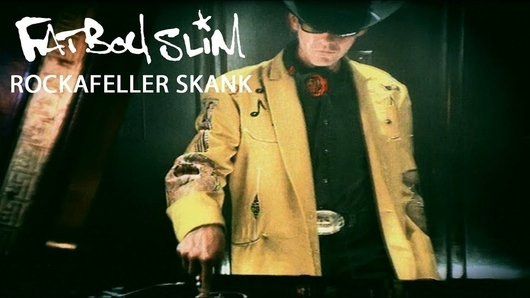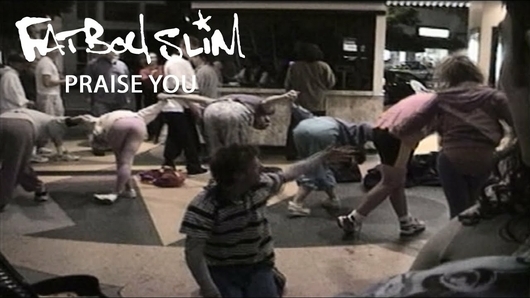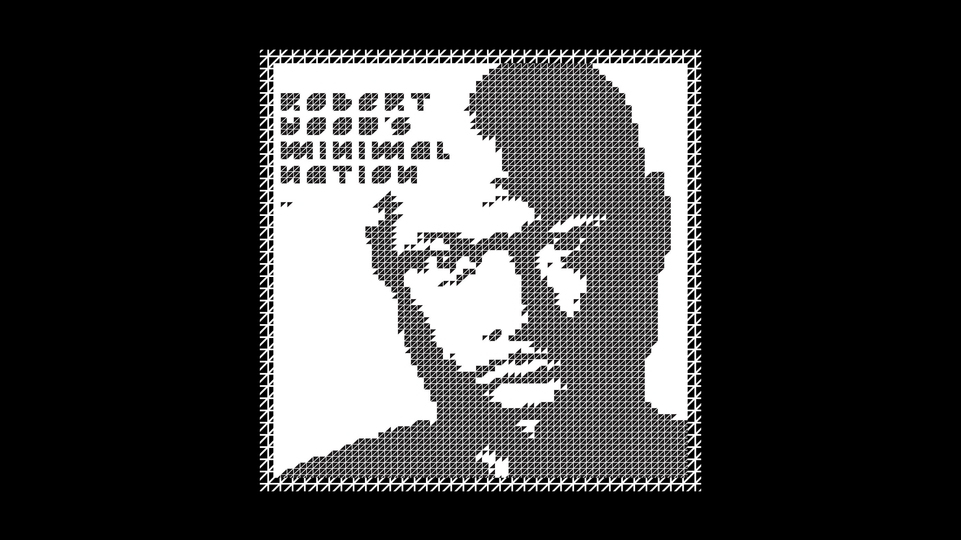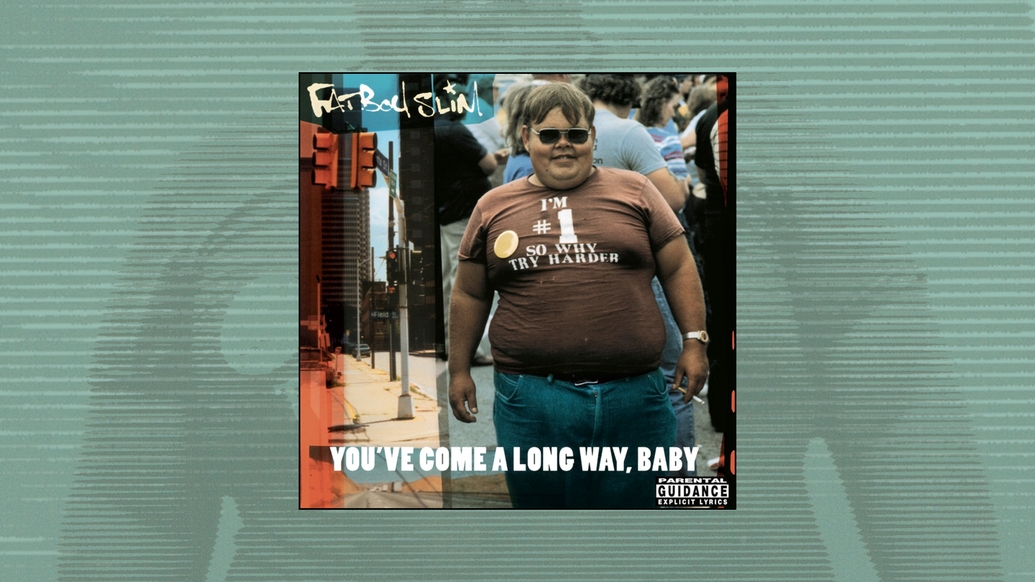
Fatboy Slim’s ‘You've Come a Long Way, Baby’ at 25: Norman Cook's rock & roll opus
A masterclass in sampling, Fatboy Slim's second album remains the best example of Norman Cook’s unmistakable sound: a tightly-knit yet light-wearing blend of rock & roll instrumentation and energy with the hedonistic spirit of late ‘90s British dance music. It went to No.1 in the charts, made a star of its creator, and is ubiquitous to this day. 25 years since its release, Ben Cardew explores its legacy
When Fatboy Slim’s ‘Rockafeller Skank’ was released June 1998, it whirled like a waltzer of twangy guitars and thrashing drum breaks. With its instantly hit-making vocal hook, this was rock & roll crafted with electronic tools, its samples extracted from unlikely sources such as James Bond composer John Barry and Northern Soul favourites Just Brothers. Its creator, the British DJ and producer born Norman Cook, handled these sounds with such finesse that it was near impossible to see the joins, and even harder to resist.
The single would prove inescapable that summer, and reached No. 6 in the UK charts. It was the first track to be taken from Fatboy Slim’s second album, a record so gloriously silly that it’s easy to forget how clever it is. Released on 19th October 1998, ‘You've Come a Long Way, Baby’ remains Fatboy Slim’s towering achievement. In it, Cook demonstrated a style that was unmistakably his: a tightly-knit yet light-wearing collage of sound. Through its weaving of rock instrumentation into an electronic palette, it deftly smuggled dance music into the hearts and minds of guitar fans on both sides of the Atlantic.
In doing so, Cook created one of the biggest records of the late ‘90s, and one of the most successful electronic records ever. In the 25 years since its release, it’s been a soundtrack to nights out, nights in, film, TV, sports, video games and more, its inherent weirdness hidden amongst gleaming pop hooks and familiar song structures. It broke the US right open as part of a late ‘90s trend for electronic music, which had also boosted the popularity of acts like Daft Punk, The Prodigy and The Chemical Brothers.
“One of the things I’d learnt was about breaking down the barriers of genres,” Cook tells us now, dialling in from somewhere in the US, where he’s playing some typically massive shows. “In my DJ sets I was dropping rock records and the crowds were going apeshit, so I kinda followed where they led.”
‘You've Come a Long Way, Baby’ is, above all, a masterclass in sample selection and manipulation; an album that feels so natural it could only have taken hard work. “I just collected a palette of noises, riffs and vocals from thrift store records and tunes from my youth and put them on a huge library of floppy discs,” Cook says. “When I was making a tune, it was just a process of auditioning them until I found the ones that fitted together to make something new. Sometimes it was effortless, sometimes it took days.”
“He has that ability to glue together disparate elements,” says Damian Harris, aka Midfield General, founder of Skint Records, the British indie label that has released all of Fatboy Slim’s records, and who praises Cook’s “collage mentality”. “You have to remember that he was a real crate digger and trainspotter in those early hip-hop days,” he says. “He has that ability to go: ‘Right, that's gonna sound good with that, we might need a bit of that’. He has that ear for simplicity often.”
‘Rockafeller Skank’ is catchy as hell, layering hook upon hook upon hook, each of which could have provided a lesser dance producer with their own winning top line. But Cook could also do beautiful: the strings on ‘Right Here, Right Now’, for example, are genuinely gorgeous, their melancholy rush feels like having your heart broken half way down a ski slope. ‘Build It Up, Tear It Down’, meanwhile, manages to combine the maddeningly repetitive intensity of minimal techno with the rough explosive power of ‘60s garage rock in an exceptionally potent mix.

“In my DJ sets I was dropping rock records and the crowds were going apeshit, so I kinda followed where they led.” – Fatboy Slim
‘You’ve Come a Long Way, Baby’ is often lumped in with Big Beat, a rather crude dance music genre from the 1990s defined by its heavy breakbeats, rock influences and tongue-in-cheek feel. But, underneath the admittedly large percussive parts, ‘You’ve Come a Long Way, Baby’ is a far more subtle record than you might expect, its good-time vibes finessed by impressively strange sonic selections. ‘Kalifornia’, for instance, is a rubbery electro number that appears to have melted in the LA sun.
Speaking to MusicRadar in 2020, Cook described Big Beat as “the sum collection of everything that’s gone before into your head, with no kind of agenda”. The genre, for him, meant you didn’t have to make an either / or choice between rock and dance music; it represented the sum of years of musical fandom, as Cook’s taste passed from The Beatles to glam rock, from punk to hip-hop to acid house. “Basically, it’s all those influences, without any kind of reverence of the rules or genre,” he said. “Back then I was like, ‘What can I get away with?’. I’d try to make pop records out of the wrong ingredients.”
These ingredients had previously included everything from indie rock and hip-hop to dub and house; to this day, Cook’s is one of the most fascinatingly diffuse careers in modern music. By 1998, he had long transcended his roots as the bass player with Hull indie janglers The Housemartins, having released a plethora of dance hits as a member of Beats International, Mighty Dub Katz and Pizzaman. Fatboy Slim first emerged in 1996 with the release of ‘Better Living Through Chemistry’, a debut collection that made waves on a global scale.
That album, despite its incorporation of distorted guitars and rock drums, was still basically a dance record: ‘Song For Lindy’ features a charging rave piano riff, while ‘Everybody Needs a 303’ is a tough, acidic workout. It reached No. 69 in the UK charts, and provided a minor hit in the US in ‘Going Out of My Head’. Bolstered by its success, Cook immediately started working on a follow up. “I knew from what was going on in the clubs I was playing what I wanted to make,” he explains. “I had a shit ton of samples from my numerous trips to America, I’d just been dumped by my girlfriend, so I just locked myself away and knuckled down to it. It felt very natural to do.”
The difference this time round was that Cook wanted to make a proper album, rather than a collection of standalone tracks like ‘Better Living...' had been. “Dance music was proving it could make actual coherent albums that people would actually enjoy for the first time,” he says. “The Prodigy and Chemical Brothers had broken new ground for us. I had a firm idea of what our sound was, and how it would work as an LP if I sat down and wrote it in one go, utilising all the ideas that had been brewing and fermenting at [legendary Brighton club night] the Big Beat Boutique and Heavenly Social for the preceding years.”
By this point, things were starting to blow up. In January 1998, Fatboy Slim’s remix of Wildchild’s ‘Renegade Master’ reached No. 3 in the UK charts. The following month, his take on Cornershop’s ‘Brimful of Asha’ reached No.1. Then, of course, came ‘Rockafeller Skank’, a track whose potential no one had quite grasped the full measure of.
“His mixes were starting to be successful, and it was starting to go on the radio,” remembers Skint’s Damian Harris. “So we knew we had something. But never in a million years did we feel that it was the size it would be. I remember the first time he played ‘Rockafeller Skank’ at the Boutique. By the end of the three minutes, everyone was singing along or going nuts. So I knew that that was big.”
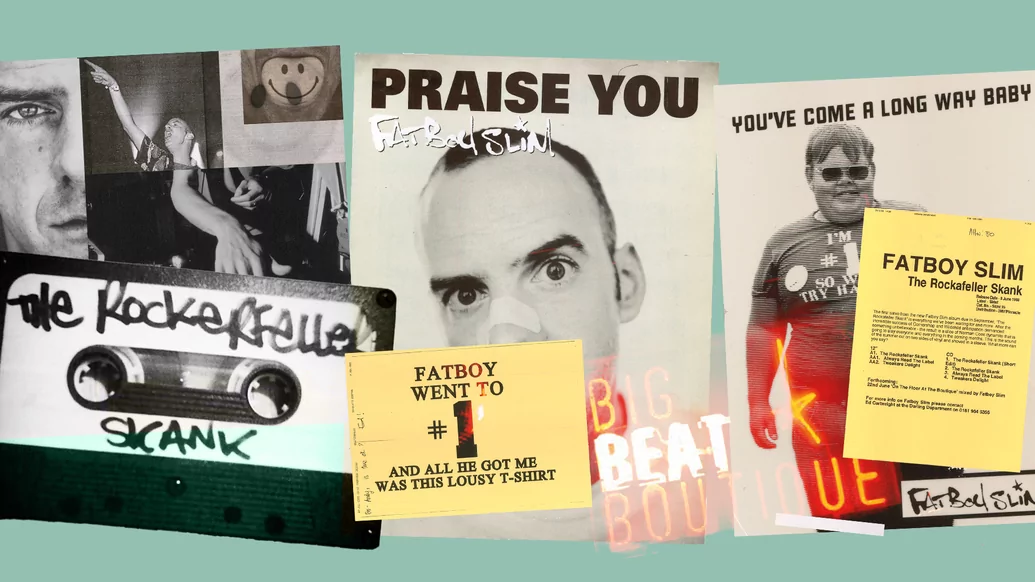
"It is a survival song. I heard Fatboy Slim's version of it shortly after it was released. The rhythms he added were great. All of my lyrics were not there but the word 'praise’ was. That was the blessing.” – Camille Yarbrough, singer of 'Take Yo' Praise'
But if Cook felt the pressure to produce a commercial album to follow his chart hits, it certainly didn’t show. ‘You've Come a Long Way, Baby’ may resound with hooks, from the rampant sampled brass on ‘Gangster Trippin’’ to the chopped up Freddy Fresh vocal on ‘Fucking In Heaven’, but it was all done in Cook’s inimitable, care-free style. ‘You've Come a Long Way, Baby’ never came across as forced or overcomplicated, even when Cook was layering sample upon sample. In fact, his studio work sounded like the reflection of his Brighton party lifestyle, as if he had brought the sunshine vibes of his DJ sets straight to the studio.
This might explain the warmth to the album, too. 1998 might have been a decade on from the rave era, but pre-9/11, pre-recession and pre-club land’s Millennial hangover, it felt like a largely positive time for the UK, which the simple euphoria of ‘You've Come a Long Way, Baby’ captured beautifully. Cook’s knack for sample-based sincerity came together on ‘Praise You’, the album’s third single and arguably Cook’s most universally adored track. The song opens with a perfectly-judged vocal sample taken from ‘Take Yo’ Praise’ by US singer, dancer, activist and author Camille Yarbrough, to which Cook adds a piano riff and explosive drums, lifting the song from earth and launching it into pop’s stratosphere.
The striking thing about ‘Praise You’ is the way it employs its source material to create a song that is stylistically very different to ‘Take Yo’ Praise’ – a brilliantly low-slung funk number – but true to its spirit of celebration. Speaking to DJ Mag, Yarbrough says that she wrote the song “because I wanted to give praise to a man who was the closest to me”.
“We had love and it was difficult when it ended,” she says. “However, we shared love for our people, for African American people. It was the civil rights movement time and the energy was for us all to stay together, our men and our women. So I wrote that song to express that energy. It is a survival song. I heard Fatboy Slim's version of it shortly after it was released. The rhythms he added were great. All of my lyrics were not there but the word 'praise’ was. That was the blessing.” ‘Praise You’ helped to generate interest in and sales of Yarbrough’s music, she says, and inspired people worldwide: “Preparing them for today's challenging world”.
For Damian Harris, hearing ‘Praise You’ was the moment he knew that Fatboy Slim’s new album was going to be something special. “With ‘Praise You’ it was like, ‘Actually, I could imagine this still being played in 30 years time on classic hits radio,” he remembers.
Sure enough, both ‘Praise You’ and ‘You've Come a Long Way, Baby’ reached No.1 in the UK charts. Perhaps more surprising, though, was the impact that the album had in the US, where it reached an impressive No. 34 amid a popular wave of European electronic music, which was re-awakening commercial interest in dance music in its home land. Cook says he is still “surprised and gladdened” by the album’s success. “I knew it was good, I knew our lot would like it, but I had only a vague notion that it could cross over onto the radio and into the charts,” he says. “I didn’t see it going global, I thought it was a very ‘English’ sounding record. I definitely did not imagine people would still be talking about it 25 years later. I remember saying as much at the time!”
It helped that Cook had borrowed deeply from the perennially popular rock songbook. “Though I was a dance producer, I had previously been in more traditional bands. So I did have some understanding of how rock music was put together, I just chose not to use live musicians,” he remembers. “It was delicious to see the new ground where dance producers like Andrew Weatherall worked with rock bands and cross-pollinated.”
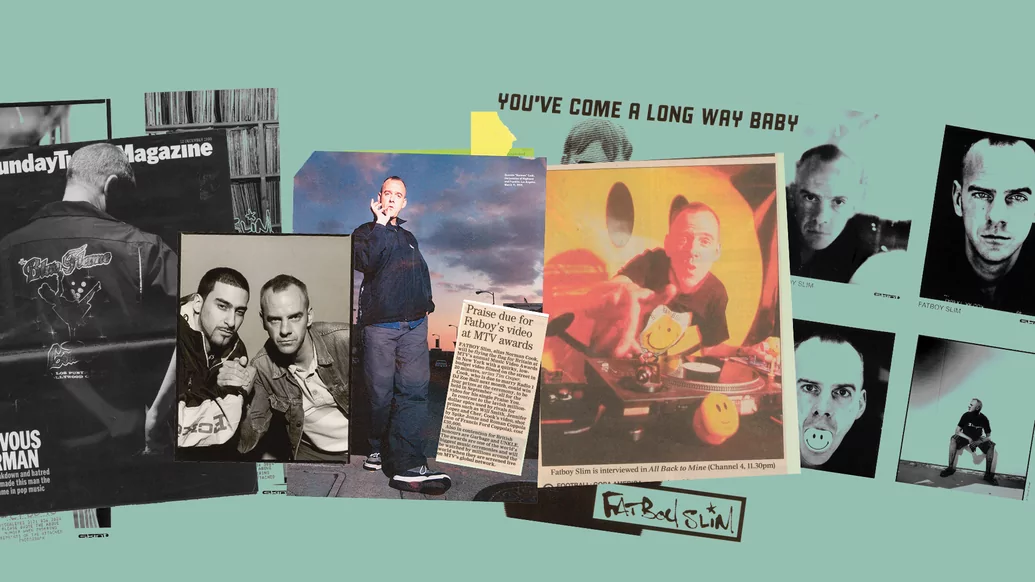
In the live arena, Cook’s decision to not work with musicians proved slightly more problematic. Of the European electronic acts who were making waves in the US at the end of the 1990s, Fatboy Slim was the only one without a live show. He remembers being “bullied beyond belief by record companies and management to do a live take on it, but always always refused”.
“I thought the charm of [the album] was the grit and character of the samples, and to hear it played by a modern band would be like hearing a wedding covers band,” he says. “With hindsight, I’m not sure we couldn’t have made an interesting fist of it but, at the time, I was feeling very free of the shackles of playing in a band.”
Instead, Cook took his DJ sets to the world, even playing the notorious nu-metal hell fest that was Woodstock ‘99. Harris remarks that Cook was able to translate his sets to these larger arenas, where DJs of the time often feared to tread, because of his innate showmanship. “Norman is a born performer on stage and he's got to show off,” he says.
Cook’s management and live agents also worked to make a simple DJ set-up palatable to huge crowds, according to Harris. “How do we put this out to 25,000 people but still make it look interesting, rather than just some bloke at the front?” he says. “The timing was right because technology would allow you to put a camera on the decks, and he could write his messages [to the crowd].”
The peak – yet also, in some ways, the nadir – of his stadium DJ craft at this time was the infamous Big Beach Boutique II party that Fatboy Slim held on Brighton beach on 13th July 2002. More than 250,000 revellers attended the party, vastly exceeding the 60,000 expected, sadly resulting in the deaths of two people and over 170 injuries.
Fatboy Slim continues to be a massive DJ to this day, though his music has never quite captured the zeitgeist in the same way as it did with ‘You've Come a Long Way, Baby’. Follow-up albums ‘Halfway Between the Gutter and the Stars’ and ‘Palookaville’ were plagued by the sense that Cook was trying a bit too hard to recreate the effortless feeling of his first two. Songs from ‘You've Come a Long Way, Baby’ have gone on to feature in countless films and TV shows in the two decades since its release, from Derry Girls and Sex And The City to 2022’s Netflix hit Do Revenge. A 25th anniversary reissue of the album has just been released to celebrate National Album Day in the UK.
‘You've Come a Long Way, Baby’ summed up the hedonistic, devil-may-care spirit of British dance music in the late ‘90s better than any other – a cultural phenomenon of the post-Britpop era that made a huge star out of its creator. More than anything, it’s a fabulously decadent and endlessly inventive record that camouflaged its incredible sampling smarts under a layer of party hats and loud Hawaiian shirts. “I am so proud of this record to this day,” Cook says. “It is the soundtrack of an extraordinary period of my life. So many DJs tell me it turned them onto dance music. There was a beautiful, anarchic groove going on back then which I will be forever honoured to be a part of.”
